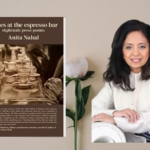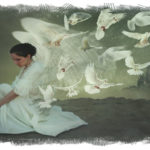The elderly midwife smiled as she told me. That was the fifth time I heard this sentence, and I was afraid of it. My baby was a cute little thing. But as I held her in my arms, I could not help but cry for sadness. Motherhood was supposed to be a happy experience. So it had been for my first two daughters but not the last three.
My husband had sternly warned me not to come back home with a baby girl. He wanted a boy to be his heir and continue the family line, not a girl who would be married off to another family.
So what was I supposed to do now that I had given birth to a girl? My mind was in shambles. For nine months, I had lived in this fear of having a baby girl. Was it such a crime to have a girl? Yes, to my husband, it was. After giving birth, my husband could not even hold or name our child. He stopped coming back home, which was the last I heard of him.
I was desperate to have five children in my care. However, to get a male child, I had stayed off contraceptives as my husband told me to. He believed that contraceptives would leave me barren and lower my chances of having a male child.
Moreover, my children had little spacing between the oldest being only seven years. My husband had decided to have only three children, but we had to give birth to more only to get girls with the male child out of reach.
I also had to quit my work since I had little space between my childbirths. Hence, I could not keep up with the working environment. I depended on my husband. Now that he was gone, I had no means of livelihood.
We lived off one meal a day. I could not put my two oldest children through pre-primary school. I had to leave our two-bedroom house to a rented one room in one of the slums in Kampala called Bwaise. I set up a small grocery store using the money I borrowed from my mother.
One Sunday evening, I heard voices of people singing and sounds of drumbeats in my neighbourhood. I listened. I could tell they were voices of women. This went on for weeks as the singing and drumming group met every Sunday evening.
One day, I could not help but find out who these people were. The sound of the drums led me to a group of about twenty women. They seemed to be between 24 to 49 years. I stood at a distance and watched them with interest. They not only sang but danced too in different traditional dances.
In between the sessions, they sat down and talked, evidently discussing. Afterwards, I saw each one bringing out money and handing it over to the one collecting it. Then, the collector wrote in a small book and handed it to the respective person. This continued for all people. Afterwards, all the money collected was given to five people. I watched this with interest since I had never seen it before. At the end of the meeting, one of the women I thought was the leader called upon the other women to encourage their colleagues to join their team.
I wanted to join this group of dancing women. In them, I saw freedom, sisterhood and hope. After the others had left, I walked towards the leader because she had remained behind. The meeting place seemed like her home. As I approached her, she looked up at me and smiled. The familiar smile with a gap between her teeth. If it was not Muzinyi I was looking then it had to be her identical twin sister. She recognised me too. Muzinyi, which means dancer, was my high school best friend, but I had lost all contact with her. After catching up, she naturally invited me to the team of women called “Muzinyi’s space”.
At Muzinyi’s space, we danced, sang, shared, laughed and discussed ways to develop ourselves and our communities. We expressed ourselves. More sisters joined us. We opened up to each other about our struggles and successes. For instance, Muzinyi, our leader, was sent out of her home by her husband after he found she had had an abortion earlier on in her life.
I realised that many of my sisters had gone through similar experiences concerning the number and sex of children. Many of them had little or no control over the number of children when to have a child or even using birth controls. That was why on average, each had four children. Like me, many had abandoned the workforce due to reproductive health demands. We are a movement of women who are moving beyond our past.
At Muzinyi’s space, we refuse to suffer in silence. Our voices have become our weapons. For example, we recently challenged a practice that demanded widows cut off their hair as they mourned their late spouses. Hair is a sign of beauty and identity. A woman has a right to wear her hair in a way that expresses her the best.
Today we celebrate our own Hope, who has become the first woman parish councillor in our locality. All the sisters were behind her in the campaigns as we believe she will make a difference in our community. Muzinyi’s space now has three meeting places and continues to grow.
I believe that every woman needs a “Muzinyi’s space”. My name is Lugero which means a story. We all have a story to tell. When we share our stories, we find healing and strength to challenge injustice against women. We choose to turn our narratives of struggle into opportunities to help our sisters. Our numbers are increasing. The movement grows on…



